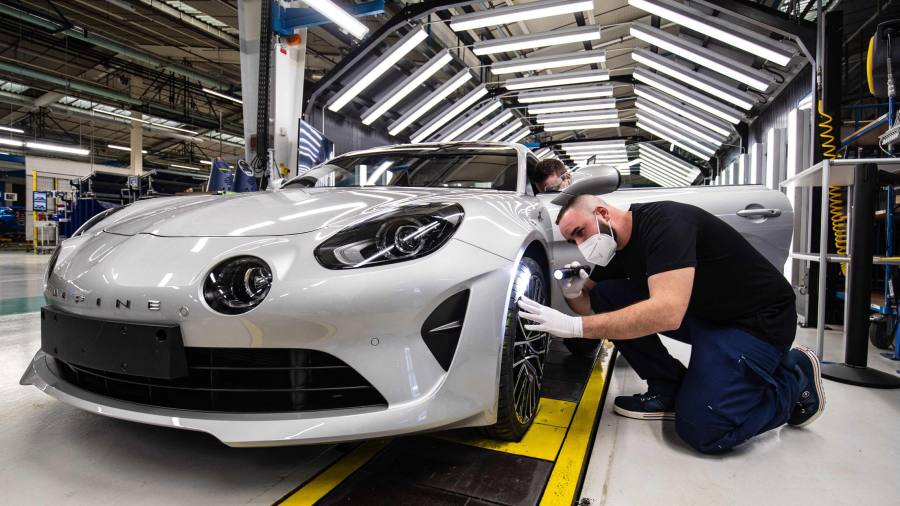
Renault is to stick with a new policy of higher priced cars even if economic conditions deteriorate, as the French carmaker seeks to claw its way back from years of depressed profit margins in a turnround drive.
After cost cuts and a move to raise prices under chief executive Luca de Meo, Renault’s revenues have begun to improve, paving the way for the recovery of its dysfunctional alliance with Japan’s Nissan.
But like rivals, Renault still faces headwinds such as a shortage of semiconductors that has crimped production and looming recession risks that could hit demand for cars.
The group, which reported rising revenues for the third quarter on Friday, has stepped up its focus on its most profitable models as well as raising prices.
“This is not going to go backwards,” financial chief Thierry Piéton told analysts. He said Renault had closed the gap with rivals on pricing on a number of its brands, including its best-selling, low-cost Dacia models.
“What we plan on doing in future is to stick to that policy in religious fashion. If the demand were to go down, obviously we’ll continue to adapt the production capacity.”
Renault’s overall revenue rose 20.5 per cent to €9.8bn year on year in the third quarter, when stripping out the effect of removing Russia from its operations, after it rushed to exit that market earlier this year. The number of cars and vans it sold, however, fell 2.4 per cent from a year earlier.
Sales were in line with analyst forecasts. Renault shares, which have risen in recent weeks on expectations of a breakthrough in its bid to ease relations with Nissan, were slightly underperforming a weak market on Friday, down 2 per cent to €31.94 in morning trade.
Piéton added that the group expected a strong fourth quarter as orders come in for models such as a new electric version of the Renault Megane.
Under de Meo, Renault has shifted away from years of focus on expanding car sales volumes — a strategy embraced by former boss Carlos Ghosn — to improving its pricing and slicing the number of models on offer.
The company on Friday reaffirmed a goal for a group operating margin above 5 per cent for 2022, but is due to present new targets at a strategy day next month.
It will also lay out more details then of its plans to spin out its electric vehicle business into a separate unit, which are part of its discussions with Nissan, people close to the talks have said.